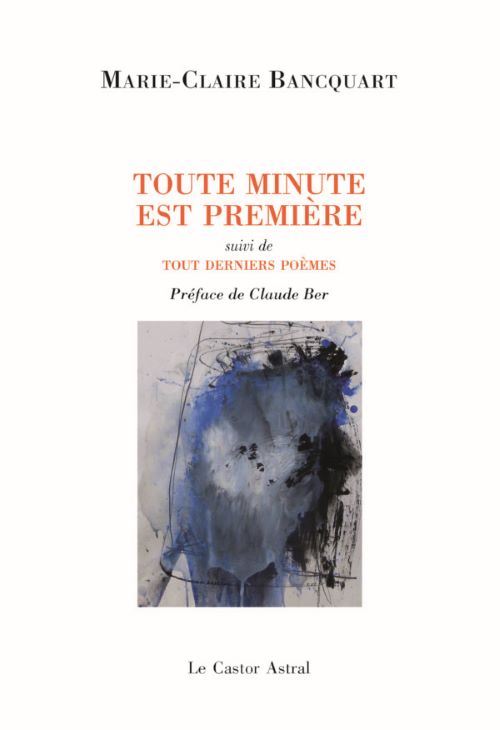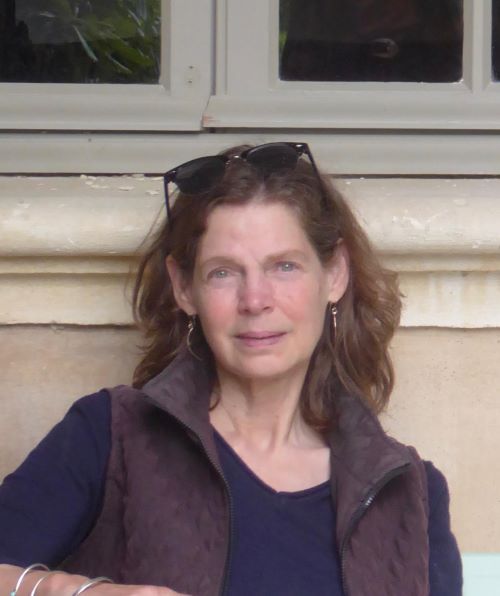This poem by French poet Marie-Claire Bancquart appears in a forthcoming collection, Every Minute is First (Milkweed Editions, 2024), the first major translation of her work into English. I fell in love with Bancquart’s poetry when I discovered it in an anthology of French women poets twenty-five years ago. I make my living largely as a translator, so the relationship of my own poetics and writing to translation is fairly straightforward: translation literally supports my poetry practice. But most of my translation work involves prose, for which there’s a market.
During the first months of the Covid pandemic, in spring 2020, I was living in France, had just finished a big prose translation project, and suddenly had time on my hands. We were in lockdown, or confinement as it was called there, which meant we could only go out for necessary errands and for walks within a kilometer of home and lasting no more than an hour. I decided to use this opportunity to translate poetry—as a labor of love—and to work on a long poem, a variation of the open “through line” form I’ve adopted in my two latest poetry collections.
Bancquart’s poems are spare, grounded, and, for all their attention to demise, surprisingly light. Just the thing for a pandemic. This poem with its “lost empires” and “catastrophes” counterbalanced by a shrinking soap bar seemed particularly suited to the moment. I was struck by Bancquart’s vertiginous shifts in scope/scale, producing the same effect they do in cartoons—making us laugh.
Bancquart is not the only poet to write about soap. The mystery of things that grow “by getting smaller” has also captivated Mary Ruefle who writes in “Lines Written on a Blank Space”: “I lifted the sponge / and touched the soap— / would it be gone by September?” The poem ends with a darkly comic shift to the soap’s perspective: “I lifted my long terrible arm/ and turned on the water.”
From March to May, I spent mornings working on my long poem and afternoons translating poems from TOUTE MINUTE EST PREMIÈRE, a collection that draws from Bancquart’s final books and was published the year of her death, 2019. My long poem did not turn out to be funny, or have soap in it, and bears little mark of Bancquart’s influence. But she was wonderful company throughout those months, keeping me grounded and light.
*
The Mary Ruefle poem quoted, “Lines Written on a Blank Space,” appears in Indeed I Was Pleased with the World (Carnegie Mellon University Press, 2007) and Mary Ruefle: Selected Poems (Wave Books, 2010).




